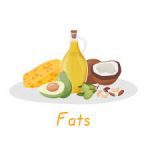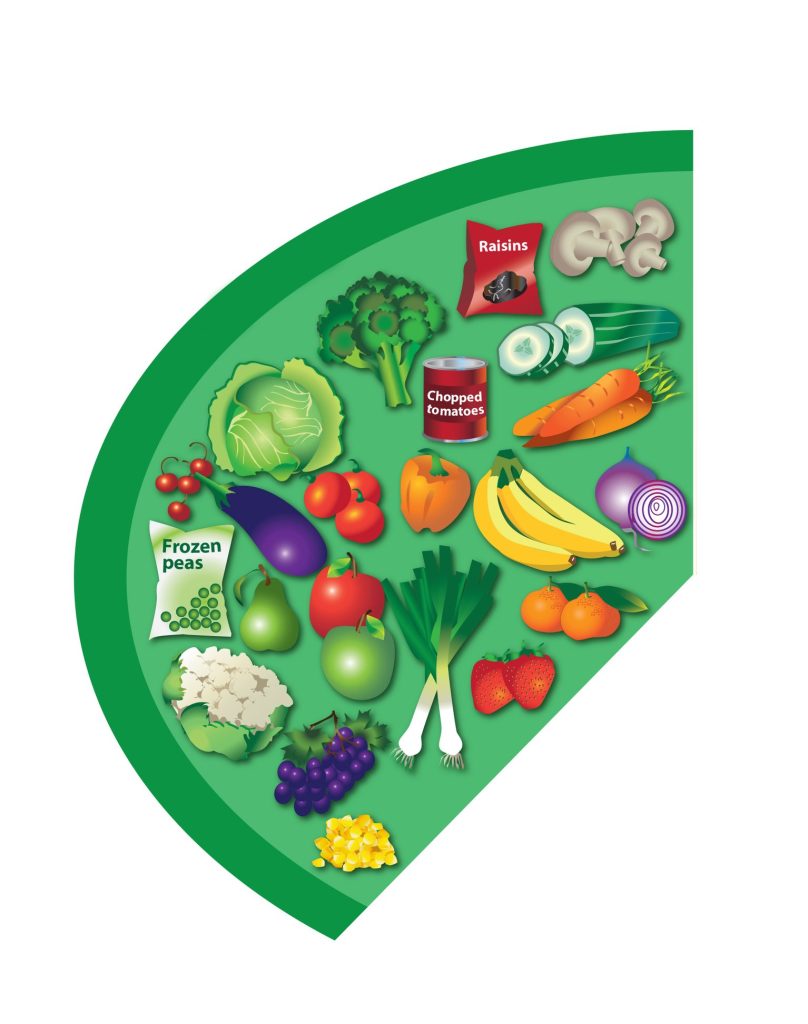
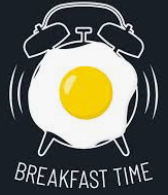
Healthy day at work
Breakfast:
Have a fruit juice or fruit, or both, with your breakfast every day.
Mid-morning:
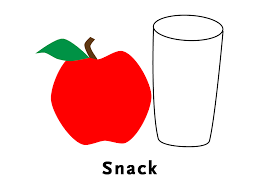
Keep a well-stocked fruit bowl at home and at work so you can eat fruit during the day.
Lunch:

Try taking an extra serving of vegetables or a side salad with your lunch. If lunch means fast food, try a vegetable chilli with a baked potato. The potato doesn’t count towards your five a day, but the vegetable chilli will.
Mid-afternoon:

Snack on some fruit or sticks of raw vegetables like celery, carrots or peppers.
Evening meal:

Serve two types of vegetables with your dinner, and make the portions a bit bigger than usual.
Source: 5 A DAY, Just Eat More leaflet. www.nhs.uk/livewell/5aday
Resources:
Easy meals from the NHS:

Our free Easy Meals app is a great way to eat foods that are healthier for you. You’ll find delicious, easy meal ideas to get you going if you’re ever short of inspiration.
Change4Life Smart Recipes:

The FREE Smart Recipe app from Change4Life is an easy way of helping you prepare tasty, healthier meals the whole family will love.
VNutrition:

VNutrition is a nutrition app designed by The Vegan Society’s Dietitian, Heather Russell, to help vegans hit their nutritional targets each day. Learn how to get your 5-a-day and more with handy diagrams, track your progress via the progress bar, and receive tailored tips to help you reach your dietary goals.
Hints and tips for fluids:

Fill a one litre bottle of water at the start of each working day and commit to drinking it all before you go home.
Take water with you into meetings and reduce your intake of caffeinated drinks.
Remember to take a drink with you when you are on the move for example on car or train journeys.
Don’t always take drinks when team members offer to make them for you. Instead, get up and make your own – the extra exercise is good for your health!
Each time you drink a caffeinated drink, have a glass of water too.
Source: www.bhf.org.uk/healthatwork
Food Labelling: What should I be looking for on food packets?
Fat |
Sugar |
Salt |
|
| High |
More than 17.5 g per 100g |
More than 22.5g of total sugars per 100g |
More than 1.5g of salt per 100g |
Low |
3g of fat or less per 100g |
5g of total sugars or less per 100g |
More than 1.5g of salt per 100g |
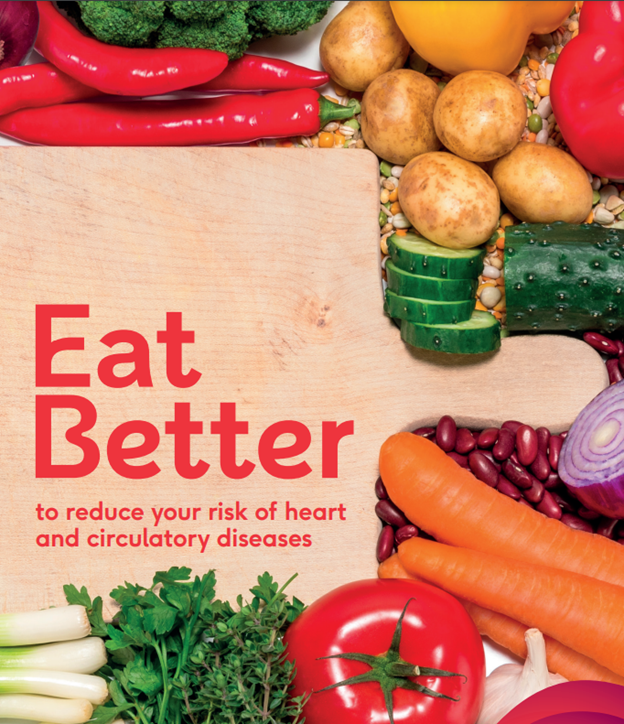 This guide from the British Heart Foundation gives information about how to eat better to reduce your risk of heart and circulatory diseases.
This guide from the British Heart Foundation gives information about how to eat better to reduce your risk of heart and circulatory diseases.
